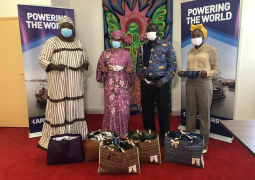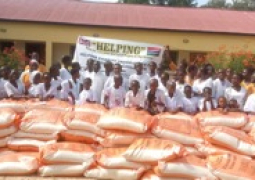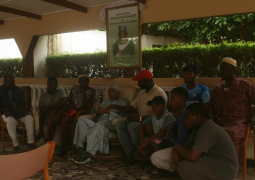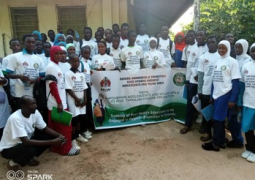Thus,as part of activities marking World Radio Day 2023, UNESCO highlighted independent radio as a pillar for conflict prevention and peace-building.
Maimuna Sidibeh, the acting secretary general of UNESCONATCOM said in reporting and informing the public, radio stations shape public opinion and frame a narrative that can influence domestic and international situations and decision-making processes.
She added that increasing radio's journalistic standards and capacity should be considered as an investment in peace.
Madam Sidibeh indicated that radio in conflict prevention and peacebuilding is an important player and an essential part of maintenance and transition to peace.
"Professional radio addresses both the root causes and triggers of conflict before they potentially explode into violence," she stated.
According to her, radio programmers varied collaborative techniques also reinforce a culture of dialogue by means of participatory programmes and formats, such as calls-in, talk shows, listeners’ fora, among othersand so give opportunities to discuss - on air and democratically latent issues, including disagreements.
"Professional independent radio, thus, strengthens democracy and provides the foundation for sustainable peace," she also said.
Babucarr Cham, the chairman of the Media Council said that radios play a crucial role in the maintenance of peace at the community level.
He said radio is a powerful medium for celebrating humanity in all its diversity and constitutes a platform for democratic discourse. He highlighted that at the global level, radio remains the most widely consumed medium.
Nana Grey Johnson, vice chairman of UNESCONATCOM and founding Dean of the School of Journalism and Digital Media at the University of The Gambia called on media practitioners to be the change through ethical journalism.
Yuspha Bojang, the president of the Network of Community Radios said radio can be used to promote peace or ignite violence.
"Radio stations should serve diverse communities, offering a wide variety of programs, viewpoints and content as well as reflect the diversity of audiences in their organizations and operations," he said.
According to him, radio is a low-cost medium specifically suited to reaching remote communities and vulnerable people, offering a platform to intervene in the public debate, irrespective of people’s educational level, and plays a crucial role in emergency communication and disaster relief.
He indicated that radio is uniquely positioned to bring communities together and foster positive dialogue for change.
“By listening to its audiences and responding to their needs, radio services provide the diversity of views and voices needed to address the challenges we all face,” he concluded.





